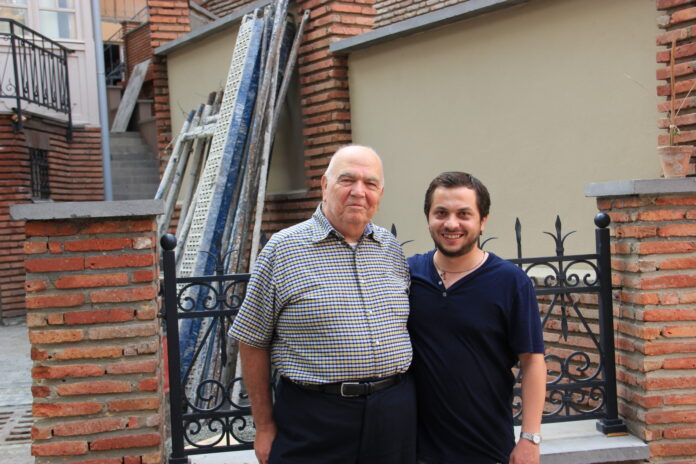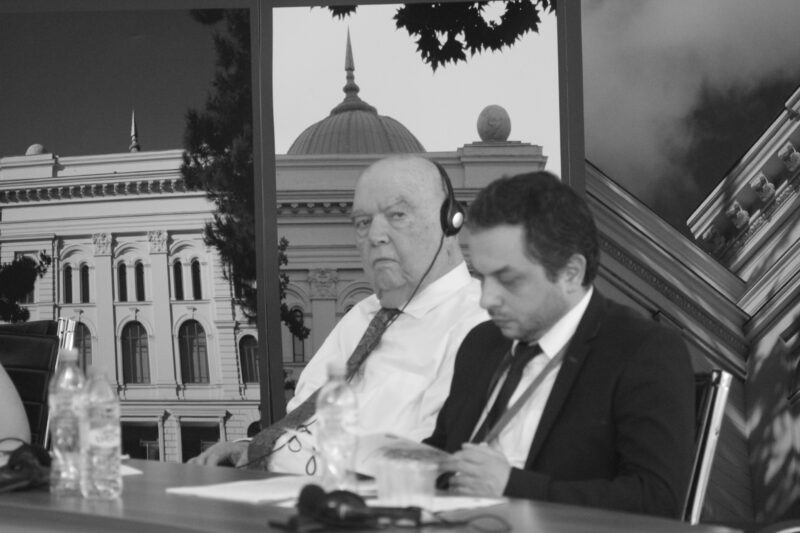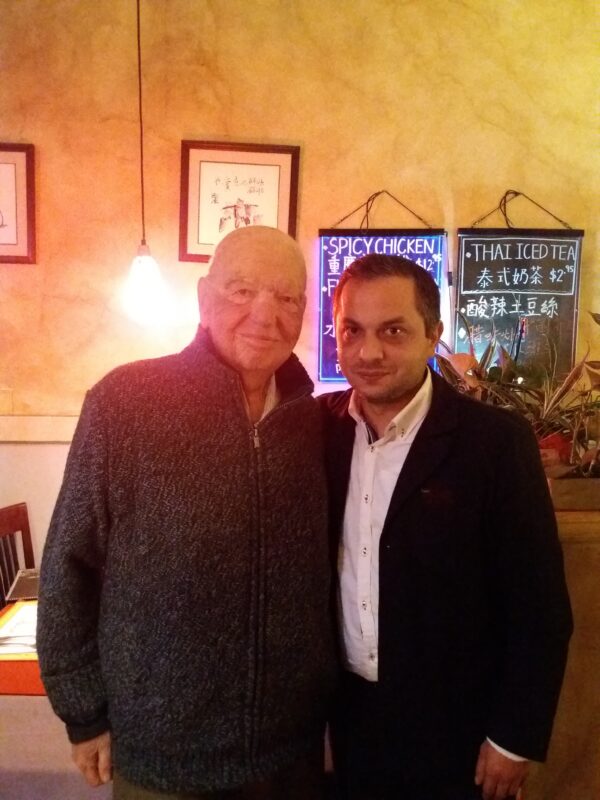By Beka Kobakhidze
Special to the Mirror-Spectator
The greatest historian of the Caucasus, the founding father of the historiography of the first republics of Transcaucasia, Richard Hovannisian, has passed away. He was a professor emeritus at the University of California Los Angeles.
His grandfather, Hovannis Gavroyan of the village of Bazmashen, Kharpert vilayet, died in the genocide in 1915. His 13-14-year-old father, Kaspar Gavroyan, managed to escape and made a long journey to California. Arriving in America, he changed his last name to Hovannisian in honor of his tragically deceased father. Richard was born in 1932 and grew up in a farming area near Tulare, California. He entered the faculty of history. He did not know Armenian. This is how he remembered this period: “at the end of every book, I opened the index pages and looked for Armenia if it was mentioned, but I couldn’t find it anywhere; I barely saw ten books where my historical homeland was mentioned. I had a dream that Armenia would become independent and I would be its foreign minister. When I was in New York, I used to go to the UN headquarters and dreamed of seeing the Armenian flag there.” Therefore, he decided to write his doctoral dissertation on the foreign policy of the first Republic of Armenia. For this he needed to learn Armenian. He moved to live in Beirut, Lebanon, where the Armenian political emigration took refuge. He studied Armenian and talked every day with Simon Vratsyan, the last prime minister of the first Republic of Armenia, the commander-in-chief of the Armenian army Drastamak Kanayan (General Dro) and other emigrants.
His love for the Armenian republic was growing, but while writing his dissertation, he realized that not only could he not include the history of two years of independence in one book, but he could not even reach the declaration of independence. Therefore, the title of his dissertation and the first book published in 1967 became Armenia on Road to Independence, which covered the period until May 1918. After that, he researched the history of the republic for another 30 years and published the four-volume set of The Republic of Armenia. He was joking about himself: “I was studying two years of independence during 35 years.” When he was doing this project, he visited several continents, dozens of countries and even more archives. He also learned new languages for the same purpose. At the end of this long journey the USSR collapsed and he was admitted to the Soviet archives. He did not become the foreign minister, but he still fulfilled his dream – his son, the first foreign minister of independent Armenia, Raffi Hovannisian, raised the flag of independent Armenia at the UN headquarters in New York.
In addition to researching the Republic, Richard took advantage of his American citizenship and traveled throughout Turkey, describing the Armenian footprint in every important city and region, while it still existed. Thus, he published 16 volumes on “Turkish Armenia.”













